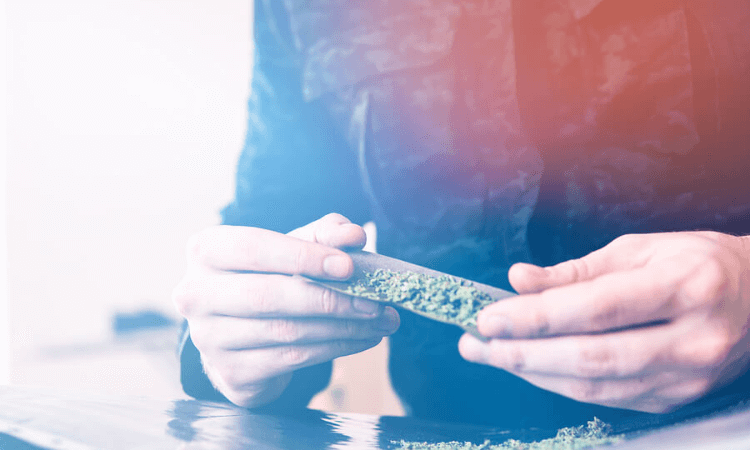
Long-Term Effects of Marijuana – Marijuana is often perceived as a relatively benign drug, which may explain why tens of millions of Americans have tried it at least once. While marijuana’s effects may not be as serious as those associated with other drugs, the drug cannot be considered harmless.
The Long-Term Effects of Marijuana
Long-term effects of marijuana may include the following:
1. Increased Cancer Risk
It is believed that the tar and other ingredients associated with smoking marijuana may increase the risk of lung cancer. The fact that people usually smoke marijuana without a filter increases this risk. Of note, consuming marijuana orally or using a vaporizer would not likely have such an effect on the lungs.
2. Memory Impairments and Reduced Motivation
Research has found that marijuana use can cause problems with memory and concentration in the long-term. Also, marijuana users may feel less motivated at work or school and fail to take care of their responsibilities.
3. Respiratory Problems
The smoke from marijuana can cause lung and breathing problems. It has also been linked to chronic cough with phlegm and bronchitis.
4. Schizophrenia
Although it is not fully understood, researchers have found a link between schizophrenia and marijuana use.
Short-Term Effects of Marijuana
While the long-term effects of marijuana use have been under some debate, its short-term effects are well understood. Marijuana’s short-term effects may include the following:
- Feelings of well-being
- Relaxation
- Sleepiness
- Increased appetite
- Amusement
- Paranoia
- Hallucinations
- Increased bodily awareness
- Sharper hearing
- Heightened sense of smell
- Short-term memory loss
- Impaired concentration
Is Marijuana Addictive?

Marijuana users would do well to understand its potential for dependence and addiction. Those who use marijuana may believe that it is not an addictive substance. Nevertheless, experts have found some evidence that marijuana does indeed have the potential to be chemically addictive.
The fact is that marijuana is habit-forming and can result in an emotional dependence is not up for debate. The National Institute on Drug Abuse (NIDA) reports that approximately 9% of people who use marijuana become dependent, and 30% experience a substance use disorder of some measurable severity.
This fact may seem insignificant compared to those who develop addictions to more potent drugs, such as heroin, cocaine, meth, or even alcohol. Regardless, some people may be at an increased risk of becoming dependent on marijuana, and it does actually occur.
There is at least one indisputable fact that lends credence to marijuana’s addictive potential: chronic users very often report experiencing unpleasant withdrawal symptoms when they stop using. These effects, in addition to drug cravings, often compel users to resume use in order to avoid discomfort. This cycle can lead to compulsive drug-seeking, which is itself one of the key behaviors of addiction.
Addicted individuals will continue using despite the fact that they are incurring adverse consequences, including health problems, emotional issues, and reduced academic and professional performance. A substance use disorder is likely occurring if one’s marijuana use receives reasonable complaints from others.
Tips for Overcoming Marijuana Addiction
Long-term marijuana users should consider seeking treatment to decrease the risk of relapse. Any person who is trying to quit and finding it difficult should do the same. Treatment also helps to address the underlying reasons why people abuse marijuana in the first place. These reasons may include mental or physical health problems, a history of childhood trauma, or any variety of emotional reasons.
That said, not everyone seeks treatment in this way. Those who do not may benefit from the following advice.
1. Find Support
Whether or not a person has developed a full-blown addiction to marijuana, he or she may still struggle with the idea of living without it. Support groups, such as Narcotics Anonymous, can help normalize this experience and make people accountable for their choices.
2. Find or Renew Enjoyable Activities
Marijuana is frequently used to fill a void in a person’s life. Instead of resorting to drug use, an individual can seek out alternative activities that occupy their time in a productive way. Learning the art of distraction can be a handy tool for reducing drug use or quitting altogether.
3. Understand Addiction
No matter what, addiction is characterized by an obsession with obtaining and using a substance. This obsession occurs even in the face of negative consequences. Regardless of whether you believe a chemical dependence on marijuana is plausible, this behavior is absolutely indicative of addiction.
If this is you, you have to admit to yourself that a problem is happening. Others may see it, but, ultimately, you are the one that must recognize it. Next, you should consider the possibility that you may need professional help and support.
Treatment for Marijuana Addiction
Recovery in Tune offers treatment for substance use disorders and other mental health conditions. We offer comprehensive programs in intensive outpatient and regular outpatient formats. Services we offer are evidence-based and intended to treat all aspects of a person’s mental and physical well-being—not just substance use or dependence.
Contact us today if you are ready to recover from substance abuse and regain the healthy and fulfilling life you deserve!